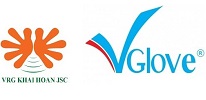Pandemic showed U.S. reliance on PPE imports. New KC mask factory wants to change that
Last spring, Dr. Farid Namin was taken aback when he was told that some hospital procedures might need to be postponed because of a quickly evaporating supply of masks and other personal protective equipment.
“To me, that was very shocking because up to that moment I had no idea that we import all these PPE products,” he said. “When you utilize something on a daily basis, you never think where it’s coming from or how it’s made.”
But last year, as the coronavirus began to spread across the globe, it quickly became clear how much American hospitals depended on imported masks, gloves and gowns. A global shortage pushed doctors and nurses in Kansas City to sterilize disposable face masks and bleach gowns to conserve supplies as many hospitals here and across the nation postponed elective surgeries.
Namin is a private practice gastroenterologist who treats patients at Centerpoint Medical Center in Independence and St. Mary’s Medical Center in Blue Springs. He has no background in manufacturing. But he said the pandemic pushed him into the industry.
Now, his PPE Mfg USA Corp. is preparing to open a 15,000-square-foot factory in Riverside that will produce millions of face masks. Namin said the company will start by making N95 masks and three-layered surgical masks.
Though the pandemic prompted the endeavor, Namin said the factory is intended to outlast it by creating domestic supply for hospitals, doctor’s offices and medical device and pharmaceutical manufacturers.
Even if the coronavirus vaccines quell the pandemic soon, Namin believes many people will continue to use masks when they’re around big groups or traveling.
“It was a wake up call for the country as a whole,” he said. “You never know what’s going to come next. So protecting yourself has become a culture. It may not be regulated and it may not be enforced, but I think a lot of people will take it into their own hands to protect themselves more going forward.”
In 2018, China produced nearly half the world’s imports of face coverings, protective garments, gloves and goggles, according to the Peterson Institute for International Economics.
Like many other consumer goods, the United States’ supply of PPE became dependent on imports because of their substantially lower prices. Namin said he expects the Kansas City-made products to compete on price. And he thinks medical and pharmaceutical organizations will flock to a high-quality, domestically produced option.
“I truly believe there’s going to be demand,” he said.
Missouri awarded about $400,000 in federal coronavirus relief grant dollars to PPE Mfg USA Corp. Namin said he is among several owners of the company, which was incorporated this summer. Missouri Secretary of State records list Ray Adams as an incorporator. He is the president of ALG Transportation Inc., a local aviation services and leasing company.
PPE Mfg USA Corp. plans to hire about 40 workers when it gets operations rolling later this month or in early February. Much of the production will be automated. The small factory will initially be able to produce as many as 30 million surgical masks and 16 million N95 masks annually, said Eric Heitmann, director of operations.
Aside from offering made-in-America products, Heitmann said the local plant will offer higher quality products. It can offer custom-fit masks and will include a 4,000-square foot clean room to ensure all products are made in a sanitary environment.
“That’s the difference between us and a lot of the companies that started up overnight,” said Heitmann, who previously worked in medical and pharmaceutical device manufacturing.
When consumers purchase masks or other protective gear online, they don’t really know where it comes from or what quality it is, Heitmann said. But PPE Mfg USA Corp. plans to offer products certified by the National Institute for Occupational Safety and Health and rated by the third-party International Organization for Standardization.
Throughout the pandemic, federal officials found numerous instances of mislabeled masks and respirators that didn’t provide the advertised level of protection.
“We as a nation are completely exposed to imports, and imports made to their standards not our own standards,” Heitmann said. “We need to educate the public. Know who you are doing business with.”


